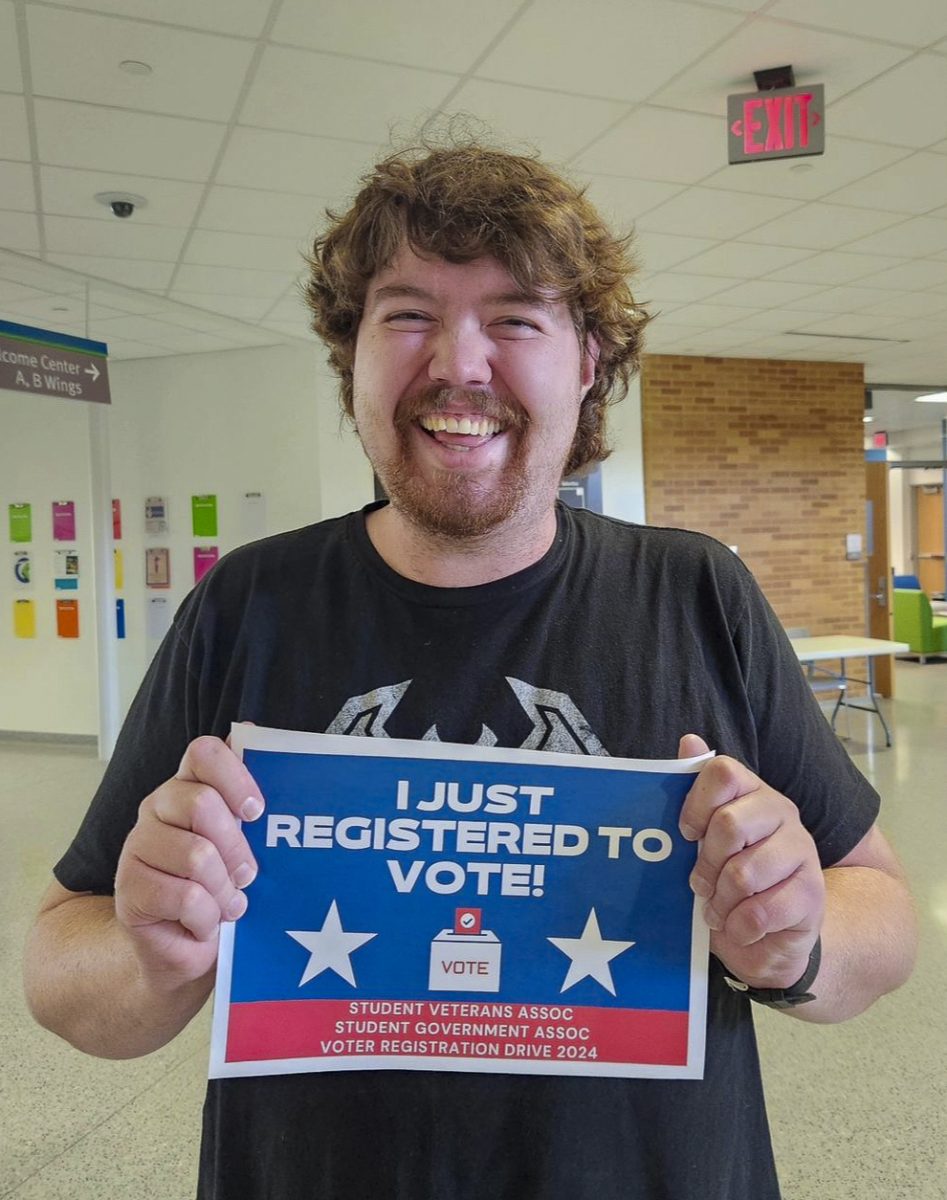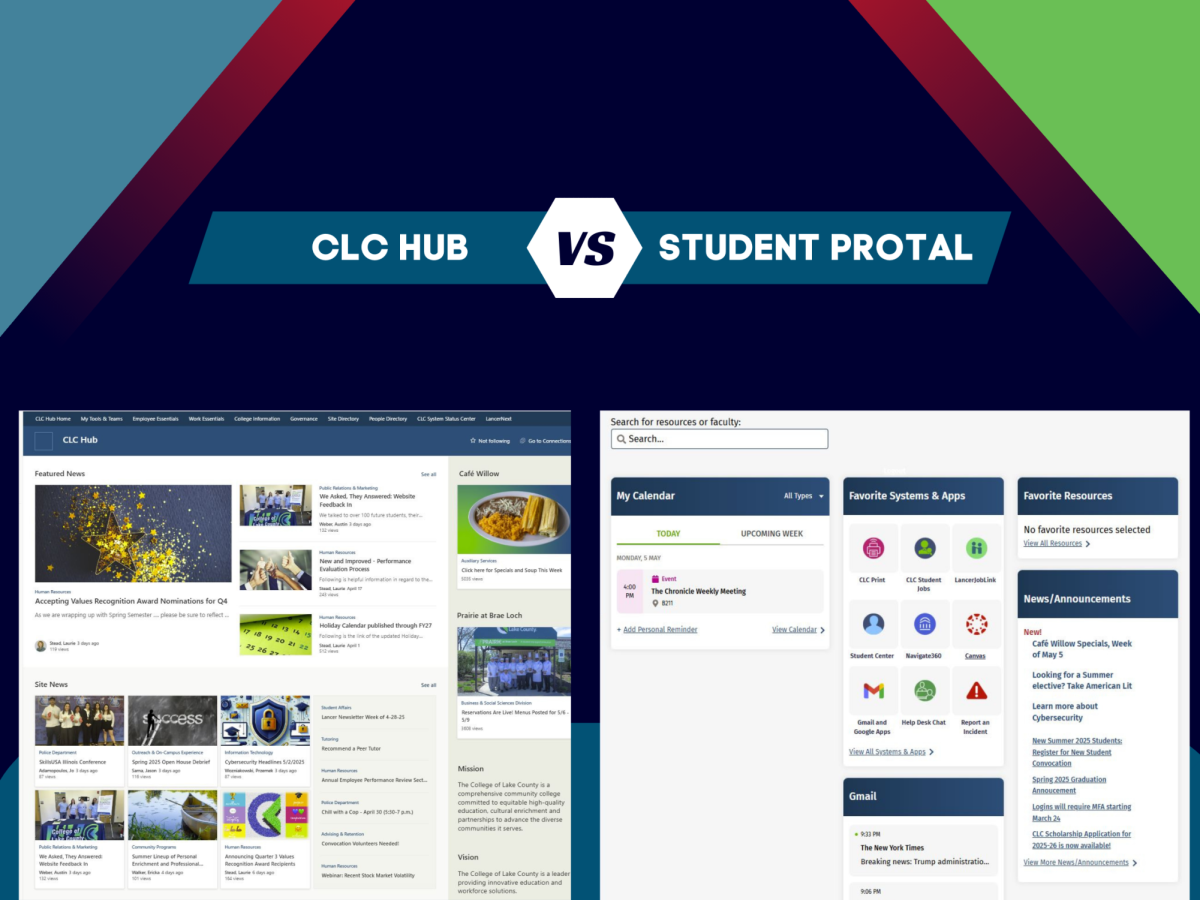The holiday season is already upon us, but aside from the pumpkin spice and Thursday night football, the country is preparing for the most anticipated event this year, the presidential election.
At CLC, the Student Government Association (SGA) partnered with the Student Veterans Association (SVA)for an on-campus voter registration drive. It was a two-day event that took place at both the Grayslake and Lakeshore campuses. I sat down with SGA President Kat Torres, after the event to ask how successful the drive had been. She boasted record numbers of student registrations–three times higher than any previous registration drive.
I was at the edge of my seat waiting to hear the numbers. Torres pulled up the combined totals from both locations and said “64 registrants in two days.”
In no way did I want to diminish their success, tripling participation is a massive achievement. Yet, I went away wondering why so few students were motivated to participate. How is 64 the largest number they have ever had, and by such a large margin?
According to College Factual’s analytical report on Demographics and Diversity, CLC has just under 12,000 enrolled students, 6,572 of which fall into the 18-22 “new voter” age range. That means, in the best year ever in CLC history for registration drive participation, we still drew in less than 1% of new voter aged students. I needed to dig deeper and figure out why, and if this was at all indicative of a more widespread aversion among young college students toward voting.
As I began to look more broadly at national statistics, it became clear that this was a universal issue. The US Census Bureau released a report in May 2023 that compared voter registration by age group. According to their research, 49.2% of college students and young adults within the ages of 18-24 are registered to vote, making them the demographic with the lowest voter registration rates.
Data shows voter registration rates increase as age increases. Within the oldest demographics, registration rates are as high as 77.9%. This begs the question: Why are young people registering to vote in markedly lower numbers than older generations?
A recent paper by the Berkeley Institute stood out. Dr. Erin Hays explored the connection between generational values and political participation in recent years and noted the decline in new voter registration as Gen Z comes into voting age.
“Young people feel disillusioned with the political system,” Hays said. “They think their vote doesn’t matter and will not make a difference in their lives, and that voting is ineffective or perpetuates a broken system”
According to a recent poll, “young people think that much in their lives is outside of their control,” she said.
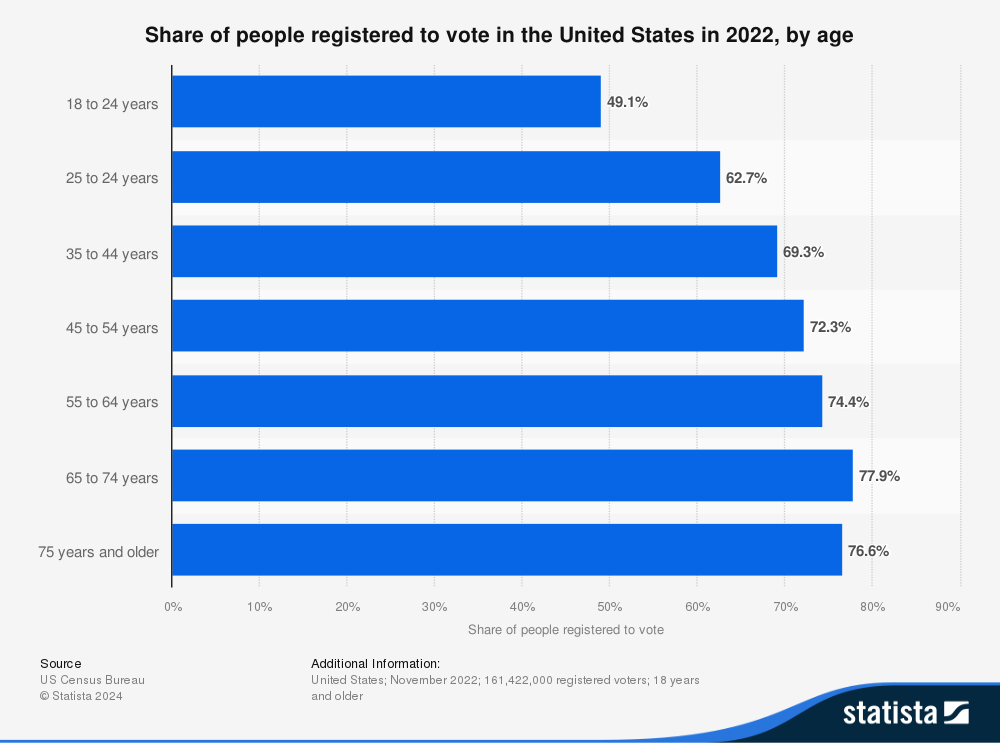
Could this fatalistic view of the U.S. political system be a key factor in why registration drives have struggled to see more participation at CLC?
I felt it was time to go face to face and ask some of my fellow students their views on the issue.
I met a friendly duo enjoying their lunch outside Caffe Willow: Ana Ferguson, education major and Yosef Furlett, English major. While both had personally registered to vote, they expressed knowing many peers who hadn’t and gave some insight as to why that might be.
“I feel like there’s this kind of daunting thing about registering to vote and voting in general,” Ferguson said. “People are really worried that it’s not going to count”
Furlett said constant access to information via social media may play a role in this generation already feeling political pessimism and burnout.
Given the current economic, social, and even international issues people are experiencing, it makes sense why a generation who has grown up hearing promises of change, but have yet to see their parents’ votes lead to tangible delivery on those promises, may fail to see the value in participating themselves. What would motivate someone to vote in a system they see as fundamentally broken?
So I wondered about students who are voting. How are they motivated despite the political disenfranchisement of the generation?
I asked Ferguson and Furlett why they registered in spite of the issues they raised. Furlett said he felt most of our political problems are propagated by the older generations and how out of touch they are with the needs and concerns of younger adults. Instead of abandoning the system, he said the younger generation should vote for the people that they think should be in office.
“I feel it’s a ‘practice what you preach’ kind of thing,” Furlett said.
As I continued to wander the college halls, I chatted with theater major
“There’s a lot going on in the world and we hear about it all the time,” Furlett said. “It just gets a little overwhelming sometimes.”
Sierra Ryan. She said she had registered to vote early when she was still 17. I asked her why, unlike more than half her peers, she was so enthusiastic to get registered to vote that she couldn’t even wait for her 18th birthday?
“I’m Black,” she said. “We fought for our rights to vote. And I’m a woman too. So I think it’s very important. If I have a right to vote for who I want to lead the country, then I’m going to vote.”
It seems that the core difference separating students who plan to vote and those who remain unregistered is whether young adults believe they have power to affect change. People who feel disempowered struggle to see value in participating in our political system. Those who feel empowered are motivated to use their right to vote, under the belief that the younger generation can come together to effect real change while also honoring those who fought for their right to have a voice.
How can we empower more college students to get involved?
I asked Ferguson how she thought people could help empower their friends to get registered. She emphasized how overwhelming the mental load can be on young people concerning politics and how lowering that load could empower more of our peers to get involved.
“Take them through the steps with you to register,” she said, “because it’s scary to register and vote alone and so that could help. Be encouraging like, ‘Come with me. I’m gonna register.’”
So, I decided to do exactly that. I went in search of some unregistered students to see if I could empower them to join me and get registered.
It didn’t take me long to find Marshall Lewis and Calvin Romano hanging out in Cafe Willow. Romano is an English major, and Lewis said he was working on his general education studies in hopes of transferring into CLC’s Nursing Program.
Romano said he was busy with day to day issues and registering to vote just wasn’t high on his priority list. He said he sees political and election news online frequently and he wasn’t sure either major party candidate would work in his interest.
“I’m still trying to decide if there’s any actual reason to vote,” Romano said.
Lewis said for him it was a lack of motivation.
“I just don’t think about it,” he said. “That’s my problem.”
I asked them if they would be more likely to register if I made it simple and took away a lot of the mental load for them. Both seemed open to the idea. So, we made a pact that I would supply a QR code right here in this article that will be a quick and easy path to Illinois same-day online registration. They promised that if I made it an easy, no-stress click they would join me and register. We parted ways and I felt encouraged that we can empower each other as fellow students by encouraging our peers to get involved and helping to make the process less daunting.
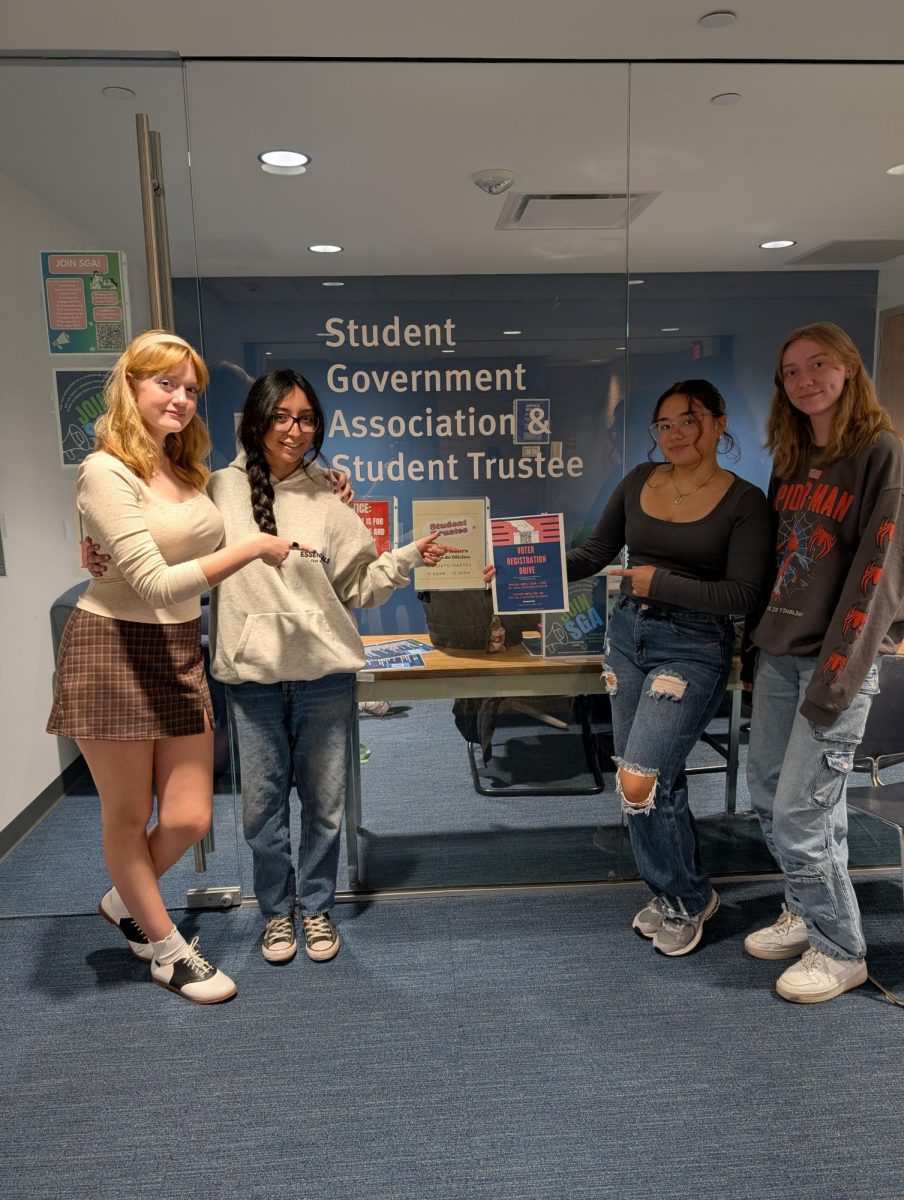
I asked SGA President Torres if they had any plans for more registration drives before November. She said she was open to the idea if any club wanted to sponsor one, but there are no plans at the moment. They do, however, plan on hosting an Election Day event to get students to the polls in November.
Throughout the election season there are a lot of things college students need to be aware of to make an informed decision on who they would like to elect.
Before I left my meeting with SGA, I asked President Torres and the other senators why the younger generation should register to vote.
“It’s important to have young voices represented in those ballots,” Torrez said, adding that in governance, there are a lot of older opinions and older mindsets.
“That’s not anything bad,” Torrez said. “It’s amazing to have a sense of wisdom in every decision. But to have that young perspective and young voice in the ballots is also very important.”
Paola Gonzalez, senator and chair of the Student Engagement Committee, said every vote matters.
“People say, ‘Oh, it doesn’t matter. You don’t have to vote. You’re only one person. What can you do?’” she said. “But you could be that person that tips off the scale. So, I personally believe, no matter how many people are in this world, I feel like it’s always important to make your voice heard.”
I agree with Gonzalez. We have the power to make our voices heard in this election. We can’t have an impact if we don’t choose to get involved. Sure, it may be an uphill battle, but we can’t win if we don’t start the climb. We can’t vote if we don’t register.
Since no more registration drive events are set to happen on campus, I thought, why not be the drive? Each of us who are registered have the ability to empower those around us. We don’t need a table. If you’re registered already, take the QR code and post it on social media, text it to your friends, and create a movement. We have power. All we have to do is choose to use it.
Election Day is Nov. 5. So, if you haven’t yet, join Lewis and Romano and scan to register. If you have registered, take some time to check in with your friends and get them registered too. If we come together, we can make an impact. See you at the polls.
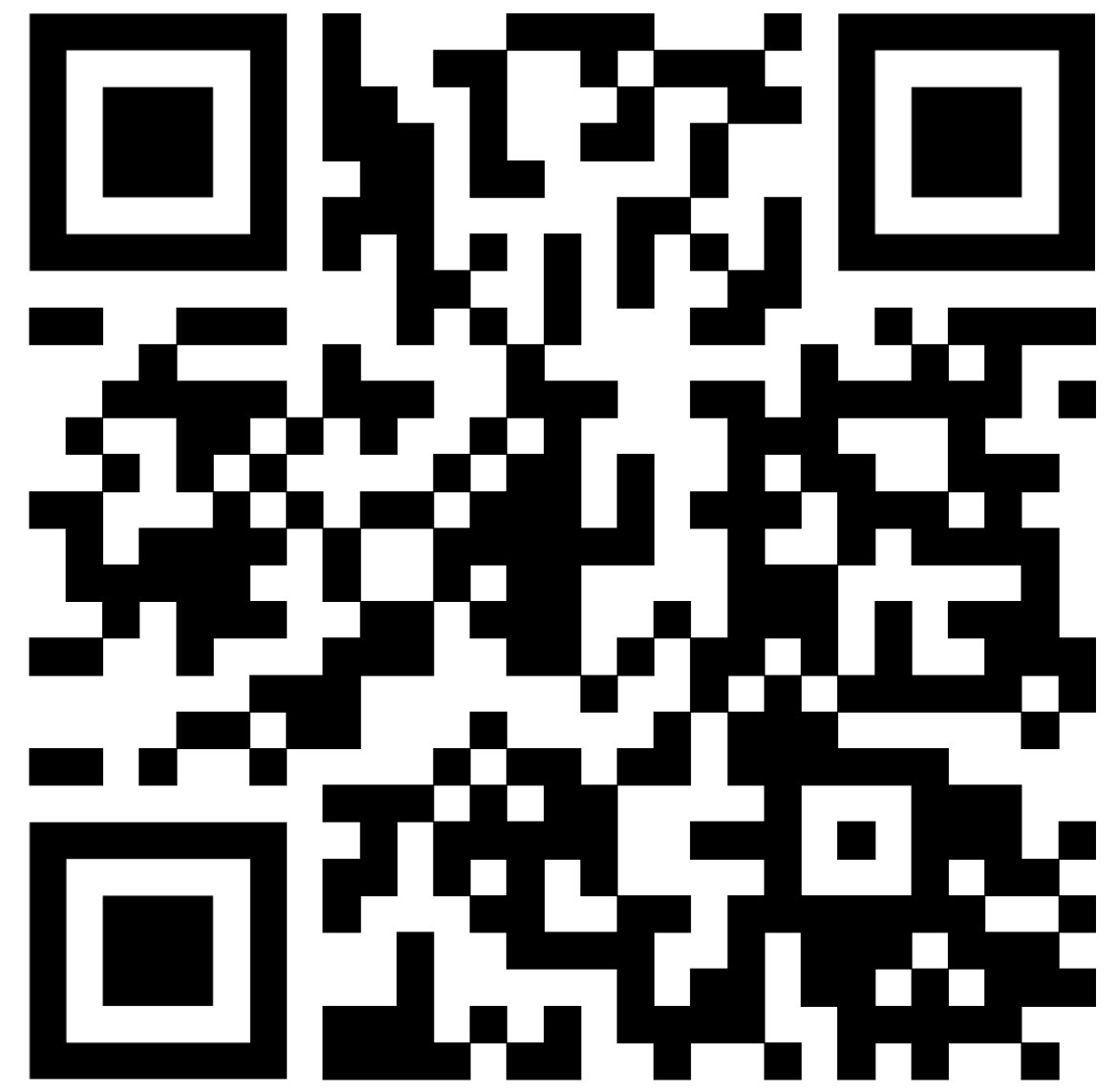
https://ova.elections.il.gov/Step0.aspx

